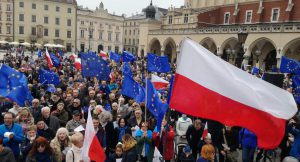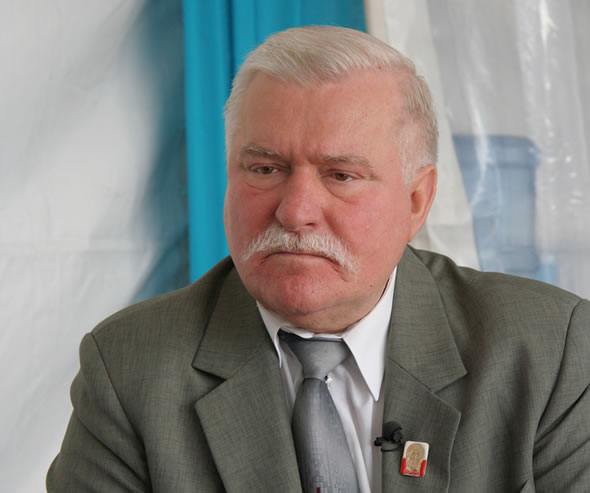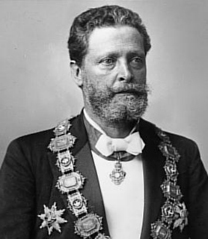A new ESI report on this is coming early next week – in recent weeks we presented the ideas below at many meetings to policy makers, from Athens to Stockholm, from Berlin to Brussels.
If Europe’s current refugee and migration crisis has made anything clear over the past two years, it is this: the European Union urgently needs a credible, effective policy on asylum and border management that respects existing international and EU refugee law and controls external land and sea borders. It must treat asylum seekers respectfully while deterring irregular migration and undermining the business model of smugglers; it must save lives and respect the fundamental ethical norm of the rule of rescue, not push individuals in need into danger, which is at the heart of the UN Refugee convention (and its key article 33 on no-push backs).
The EU-Turkey agreement on refugees in the Aegean adopted on March 18, 2016, contains the elements of such a policy – but to serve as a good model it has to be fully implemented. The agreement is based on existing EU laws on asylum and on the principles of the UN Refugee Convention. It commits the EU to helping improve conditions for refugees in Turkey (the country in the world hosting the largest number of refugees today) with the most generous contribution the EU has ever made for refugees in any country in the world. It also makes improving the work and quality of the Turkish asylum service a matter of direct interest to the EU: only if Turkey has a functioning asylum system can it be considered a safe third country. Finally and crucially, it foresees substantial resettlement of refugees in an orderly manner from Turkey once flows of irregular arrivals in the Aegean are reduced. The fact that this last provision has not yet been implemented seriously does not make it any less important to the overall logic of the agreement.
Even without full implementation, the agreement has produced a dramatic and immediate impact on refugee movements in the Eastern Mediterranean. Crossings in the Aegean Sea fell from 115,000 in the first two months of the year to 3,300 in June and July. The number of people who drowned in the Aegean fell from 366 people in the first three months of the year to seven between May and July. This was achieved without pushing refugees to take other, more dangerous routes (the people arriving in Southern Italy this year were from African countries). And there have not been any mass expulsions from Greece either, something NGOs had feared would happen. In fact, more people had been sent back from Greece to Turkey in the three months preceding the agreement (967) than in the ten months since it was concluded (777).
It is obvious, however, that the EU has no current plan or credible strategy for the Central Mediterranean, and this presents a huge risk. The status quo is clearly unacceptable from a humanitarian point of view: in 2016 an unprecedented number of people (more than 4,400) drowned in the Central Mediterranean. It is also politically explosive, lending ammunition to those on the far-right across Europe (from Geert Wilders in the Netherlands to Marine Le Pen in France and the Alternative für Deutschland in Germany). They argue that the only way to control migration to Europe is by abolishing the Schengen open borders regime and restoring border controls within the European Union. The lack of a coherent EU strategy has led some to suggest looking to Australia for inspiration, praising a model whereby anyone reaching the EU by sea should be denied the right to even apply for asylum in the EU and be returned to North Africa. This would amount to the EU turning its back on the Refugee Convention, which would be a moment of existential crisis also for the UNHCR anf global policy on asylum.
A humane and effective border and asylum policy is indeed possible, and it does not involve emulating the Australian model. The first step requires implementing the EU-Turkey agreement in full. The second step would involve applying the right lessons to the Central Mediterranean as well. Both would require the EU to set up new structures, including credible EU asylum missions and instruments to resettle refugees, among others. Both depend on Greece and Italy persuading other EU countries that the challenge they face is a European one that requires innovative European solutions.
Following Through
Nearly a year after it was signed into action, the EU-Turkey agreement remains at risk – and that despite its successes so far. This is because of inadequate implementation.
On average, less than 100 people have been returned to Turkey each month; many people who arrived on the Aegean islands have remained struck there in limbo for extended periods of time, while the number of new arrivals has been some 100 a day on average in recent months.
All this creates a realistic scenario for failure. Greek authorities, under pressure and without an answer for islanders who see Lesbos and Chios turning into a European Nauru (the Pacific island where Australia sends people who arrive by boat), might move larger numbers of people from the Aegean islands to the mainland. That would again lead to rising numbers of people crossing the Aegean. Once larger groups are moved to the Greek mainland, the humanitarian situation for refugees there, which is already bad, will deteriorate further. We would see the populist-led calls to build a stronger wall north of Greece multiply.
Already now, the number one topic of conversation among migrants stranded on the Greek mainland is the cost of getting smuggled across the Balkan route, either via Macedonia or Bulgaria. It is hard to imagine Greece making a major effort to stop people from leaving the country if Greeks feel the EU has left them alone. The weak Macedonian reception and asylum system might then collapse within weeks, once more people cross the border. The Western Balkans would turn into a battleground for migrants, smugglers, border guards, soldiers and vigilante groups, destabilizing an already fragile region.
If this scenario played out, it would be a serious blow to European leaders like Angela Merkel, who argue that it is possible to have a humane and effective EU policy on border management while respecting the refugee convention. It would also be a blow to already tense EU-Turkish relations. What is needed now is the right implementation strategy.
The EU should appoint a special representative for the implementation of the EU-Turkey agreement – a former prime minister or former foreign minister with the experience and authority to address urgent implementation issues on the ground. To preserve the agreement, the European Commission and Turkey should address all concerns raised about Turkey as a safe third country for those who should be returned from Greece. Such concerns can be addressed. As UNHCR noted already on March 18, 2016, everything depends on serious implementation:
“People being returned to Turkey and needing international protection must have a fair and proper determination of their claims, and within a reasonable time. Assurances against refoulement, or forced return, must be in place. Reception and other arrangements need to be readied in Turkey before anyone is returned from Greece. People determined to be needing international protection need to be able to enjoy asylum, without discrimination, in accordance with accepted international standards, including effective access to work, health care, education for children, and, as necessary, social assistance.”
Turkey would need to present a concrete proposal on how to ensure – and how to make transparent – that it is fulfilling the conditions set by EU law to be a credible safe third country for refugees of any origin, whether they are Pakistani, Afghan or Syrian, that Greece might return. It would need to guarantee – with more assistance from the EU and UNCHR, if need be – that there are sufficient asylum case workers, translators and legal aid in place to provide an efficient asylum process. There would need to be full transparency surrounding what is happening to each and every person returned, as well. Given the small number of people concerned this is all doable.
At the same time, the EU should send a European asylum mission to the Greek islands, including at least 200 case workers that should be able to take binding decisions on asylum claims (which would require an invitation by the Greek government and changes in Greek law, and assurances that any decision taken by such a mission could be suspended by a chief Greek legal officer). Those who are given protection should then be relocated across the EU immediately; all others sent back to Turkey. The principle behind an EU mission would be obvious: in times of crisis, there is a need for a substantial number of case workers, interpreters and reception officers to ensure quality standards for assessing protection requests, and with speed where most asylum requests are submitted. It would be unfair to blame Greece or any other country for being unable to deal rapidly with asylum requests of the tens of thousands of people; it would be unreasonable for Greece not to ask for such a European mission. Ultimately it is a matter of political will on the part of the EU and Turkey to deal with the few thousand asylum seekers now on the Aegean islands, in line with international norms and EU directives for their mutual benefit.
Adapting the Agreement
So far it has proven difficult to send a sufficient number of EU asylum caseworkers to Greece. At the same time, there are still no decent reception conditions for the relatively small number of people who have arrived on the islands since April 2016. These challenges cast serious doubt on proposals to slow illegal migration to Italy by setting up reception centers somewhere in North Africa; as some EU politicans have suggested, everyone who reaches Italy would be taken there to have their asylum claims processed. This is sometimes presented as a model inspired by Australia, which puts everyone who arrives via the sea in camps on the Pacific island of Nauru or on Manus Island in Papua New Guinea. In fact, asylum seekers held in Nauru in recent years have been forced to wait many years for their applications to be decided. Conditions of detention were and remain intentionally harsh to deter further arrivals. And once asylum is granted, it remains unclear where refugees might go (recently the US offered to help out and promised to accept a large number of people moved to these islands by Australia; it remains unclear whether this will actually happen). It is important to note that Nauru never hosted more than a thousand people at any given time. The notion that the EU might outsource the detention of tens of thousands of asylum seekers to camps across North Africa for long periods and under similar conditions is surely a recipe for failure.
So how might the EU reduce the number of arrivals – and deaths – in the Central Mediterranean? The key lies in fast processing of asylum applications of anyone who arrives, and in fast returns of those whose claims are rejected to their countries of origin. Both of these tasks should become European responsibilities. Anyone who would not get asylum should be returned to his or her countries of origin. Prioritizing the returns of anyone who reaches Italy after a given date and does not get asylum should become the central issue to be negotiated with African countries of origin. On the other hand, those who are given asylum should be relocated across the EU to support Italy and Greece and replace the inadequate Dublin system (the notion that Dutch or German case officers would decide which refugees remain in Greece or Italy would obviously not be acceptable to these countries).
What would be the likely impact of such a policy on arrivals? It is very likely that these would fall sharply.
Nigerians were the largest group of arrivals in 2016, and the majority would be unlikely to risk their lives crossing the deadly Sahara, unstable Libya and the Central Mediterranean and spending thousands of Euros on smugglers when the likelihood of being returned to Nigeria would be upwards of 70 percent, which is the current rate of rejection of Nigerian asylum applications in the EU. As noted, ensuring that Nigeria, Senegal and other countries take back their nationals who arrive in Italy after an agreed date should be the chief priority in talks between the EU and Nigeria – similar to the commitment Turkey made to take back without delay people who arrive in Greece after March 20, 2016. This would require that an EU asylum mission in Italy is able to process all claims within weeks. Rapid readmission would bring down the number of people who stay in the EU after their applications are rejected. In this way, the number of irregular arrivals becomes manageable – with less business for smugglers and far fewer deaths at sea. The aim might be to reduce the number of all irregular arrivals by sea to below 100,000 (for an EU of over 500 million people) already in 2017. Such a goal is realistic: it is, after all, the average number of irregular arrivals into the whole EU in the years 2009-2013.
European leaders could thus demonstrate to their electorates that it is possible to control external sea borders without undermining the refugee convention or treating those who arrive badly to deter new arrivals. European leaders should simultaneously push forward the global debate on orderly transfers of refugees through resettlement. The only way to do so is to lead by example, building up EU capacity for resettlement as well boosting the UNHCR’s capacity to do more. Coalitions of willing EU states should commit to resettle a significant number of vulnerable refugees each year.
In recent decades, resettlement has never reached more than 100,000 a year in the whole world, and of these the US took the lion’s share. Until now European states have not built up the bureaucratic machinery for large-scale resettlement. For this reason, pushing the EU to fully implement the resettlement provisions in the Aegean agreement (point 4) is vital and deserves to be an advocacy priority for human rights NGOs and refugee rights defenders.
In the face of rising anti-refugee sentiment across the world, it will take a strong coalition of countries to protect the refugee convention. Such a coalition requires governments who are able to win elections on the platform that a humane asylum policy and effective border control can be combined and can even reinforce each other. Such a policy needs to be based on core principles: no-push backs; no-Nauru; discouraging irregular passage through fast readmission and fast asylum processes; expansion of resettlement of refugees; and serious financial help to host countries elsewhere. If this happens lessons from the Aegean agreement with Turkey – the only plan in recent years that dramatically reduced the numbers of people arriving without changing EU refugee law – might help develop a blueprint for protecting refugee rights in an age of anxiety. The stakes – for Europe and for the UN Refugee Convention – could not be higher.






